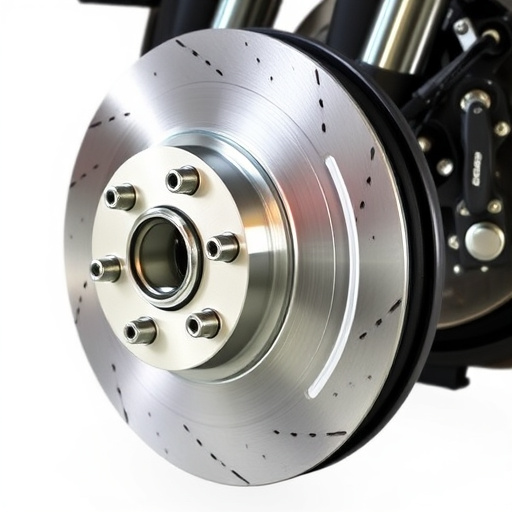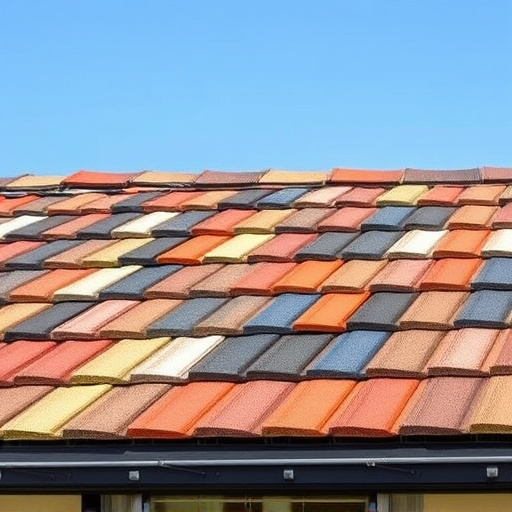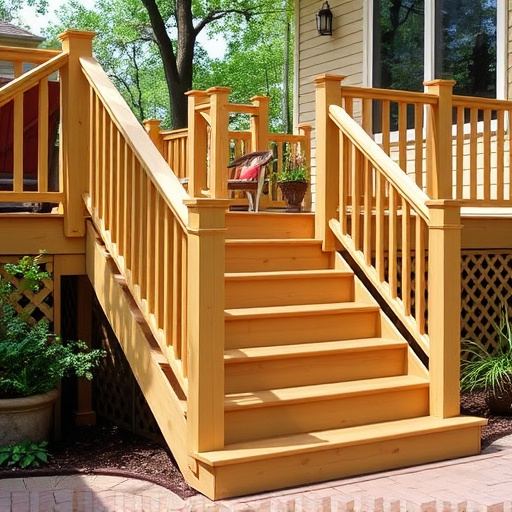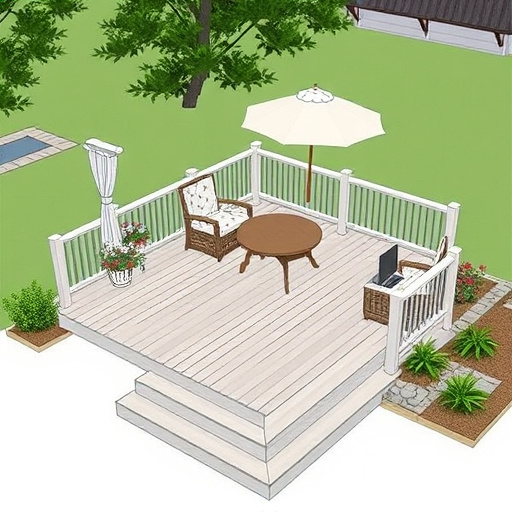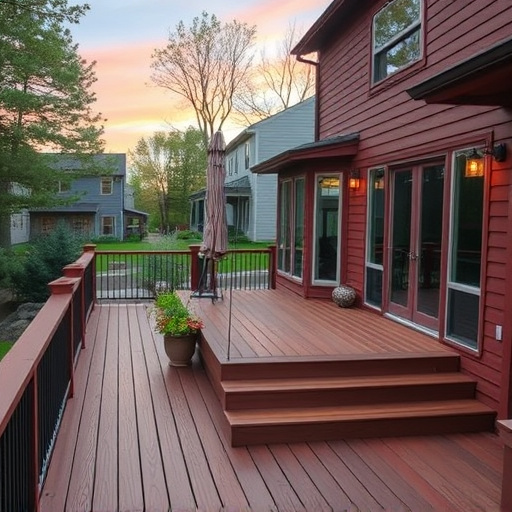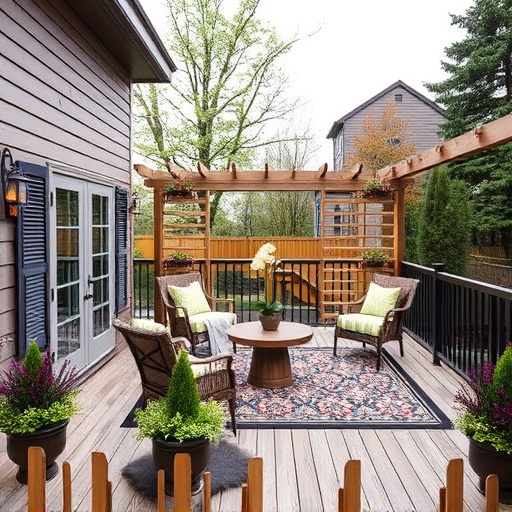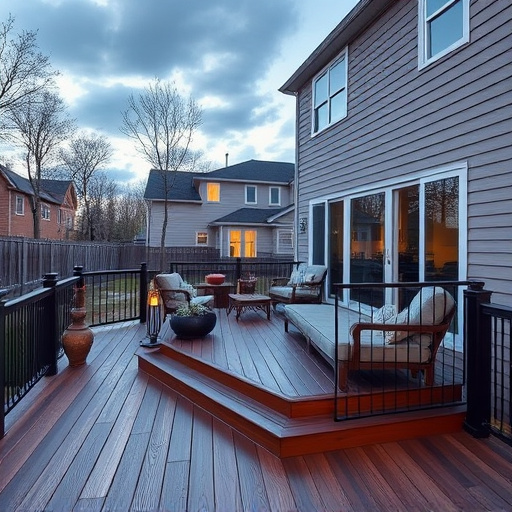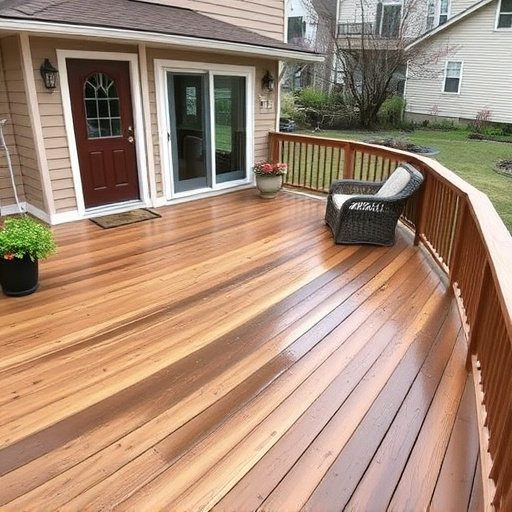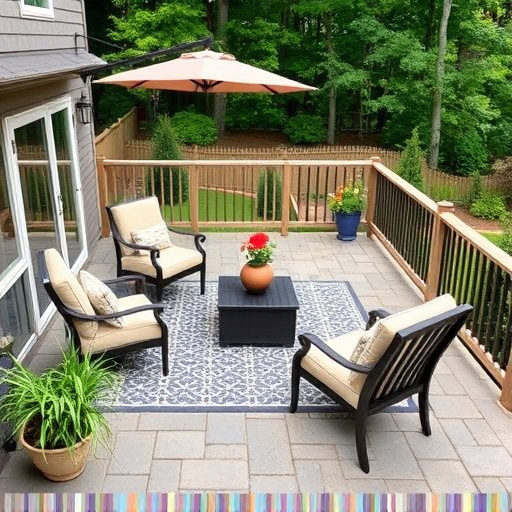Wood decks offer classic beauty, versatility, and insulation but require regular maintenance. Composite materials provide a low-maintenance alternative, with durability and resistance to harsh weather, rot, and insects. A deck upgrade enhances outdoor living spaces with natural aesthetics and warmth, blending seamlessly with natural landscapes. Both wood and composite decks cater to various tastes, with composite promising long-lasting sustainability and personalized design options without frequent repairs.
Considering a deck upgrade? Navigating the options between wood and composite materials can be a game-changer. Wood offers natural aesthetics and warmth, making it a traditional favorite for outdoor living spaces. However, its allure comes with maintenance requirements like staining and sealing, as well as concerns over lifespan and costs.
Composite decks, a man-made alternative, provide low maintenance and durability—no painting, staining, or power washing needed. They resist rot, mold, warping, and insect damage while offering diverse colors, styles, and textures. Yet, cost comparisons and considerations like location, climate, budget, and lifestyle play crucial roles in making the best choice for your deck upgrade.
- Understanding Wood Decks: Pros and Cons
- – Natural aesthetics and warmth of wood
- – Traditional choice for outdoor living spaces
Understanding Wood Decks: Pros and Cons
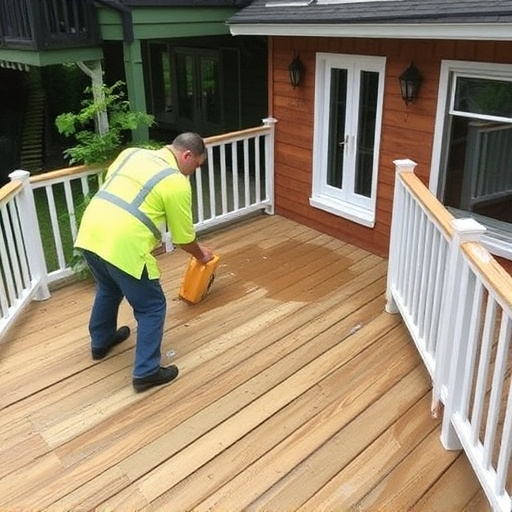
Wood decks have long been a popular choice for outdoor living spaces, offering a classic and natural aesthetic. However, when considering a deck upgrade, it’s essential to weigh the pros and cons of wood against other materials. One of the primary advantages of wood is its versatility and ability to be customized. It can be stained, painted, or left in its natural state to age gracefully. Wood decks also provide excellent insulation, making them comfortable underfoot during all seasons.
Yet, there are drawbacks to consider. Wood requires regular maintenance, including staining, sealing, and repairs to protect against the elements. Over time, it can become susceptible to rot, warping, and insect damage, leading to costly replacements. Additionally, wood decks may not be as durable as composite materials, especially in regions with harsh weather conditions or high moisture levels. This is where composite decking can offer a more long-lasting alternative for those seeking low-maintenance deck upgrade options, like professional siding installation for commercial or residential properties.
– Natural aesthetics and warmth of wood
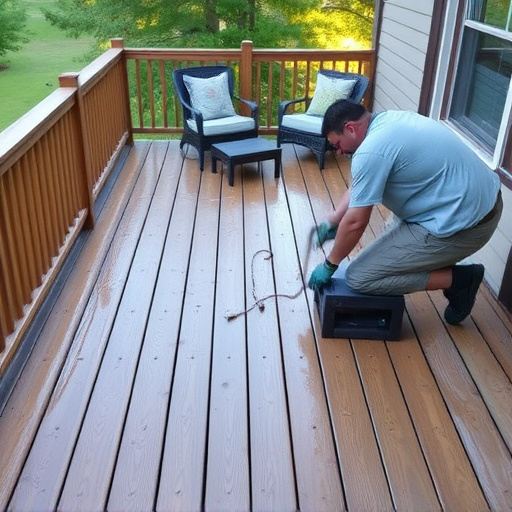
For many homeowners, a deck upgrade is about enhancing outdoor living spaces with natural aesthetics and warmth. Traditional wood decks offer an organic appeal that cannot be replicated by other materials. The rich tones and varying grain patterns of wood create a visually appealing backdrop for any outdoor setting, making it an attractive choice for those seeking to elevate their home’s curb appeal. Unlike composite materials, wood retains its ability to change and adapt over time, reflecting the natural cycle of seasons and weather conditions.
When considering a deck upgrade, remember that wood brings a sense of comfort and familiarity to outdoor spaces. Its subtle textures and warm hues can create a welcoming atmosphere, making it an excellent choice for entertaining guests or simply relaxing after a long day. Moreover, wood decks seamlessly blend with surrounding natural landscapes, offering a harmonious connection between your home and the outdoors—a key aspect often sought by homeowners looking for roofing solutions or siding and gutters that enhance their property’s overall beauty and value as part of home service solutions.
– Traditional choice for outdoor living spaces
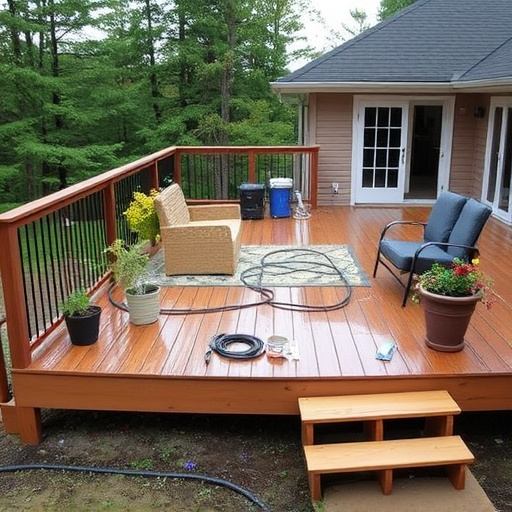
For years, wood has been the traditional choice for outdoor living spaces, offering a classic aesthetic that complements any home. Its natural beauty and versatility have made it a popular option for decks, providing a warm and inviting atmosphere to enjoy the outdoors. When considering a deck upgrade, many homeowners opt for wood due to its ability to withstand the elements while maintaining its appeal over time. This timeless material offers a range of styles, from traditional to contemporary, allowing for personalized design options that cater to various tastes and exterior home improvements.
However, with evolving trends and advancements in material science, composite materials have emerged as a formidable alternative to wood in the deck upgrade market. Composite siding replacement offers durability and low maintenance, making it an attractive choice for those seeking long-lasting exterior enhancements. Unlike wood, composite decking is resistant to rot, mold, and insect damage, ensuring that your deck remains sturdy and aesthetically pleasing without the need for frequent repairs or professional siding services. This modern option promises to revolutionize the way we think about outdoor spaces, providing a sustainable and low-maintenance solution for deck enthusiasts.
When considering a deck upgrade, both wood and composite materials offer unique advantages. While natural wood appeals to those seeking traditional beauty and warmth, composite decking is a low-maintenance alternative, making it a superior choice for many homeowners. Ultimately, the decision depends on personal preference and lifestyle, ensuring your deck enhances your outdoor living space for years to come.



